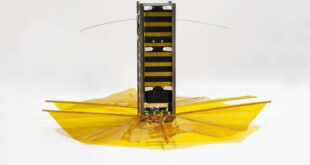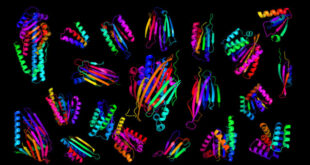People with Severe Vision Loss Less Accurately Judge Distance of Nearby Sounds, Study Shows
A new study shows that greater severity of vision loss is associated with increased auditory judgments of distance and room size; on average, participants with severe visual losses perceived sounds to be twice as far away, and rooms to be three times larger, than sighted controls; distance estimates for sighted controls were most accurate for closer sounds and least accurate for farther sounds; however, as the severity of visual impairment increased, accuracy decreased for closer sounds and increased for farther sounds.
Kolarik et al find link between level of vision impairment and audio accuracy. Image credit: Melmak.
Professor Shahina Pardhan, Director of the Anglia Ruskin University’s Vision and Eye Research Institute and her colleagues from the United Kingdom and India tested participants with different levels of vision loss, presenting them with speech, music and noise stimuli, and different levels of reverberation (echoes).
The participants were recruited from Sankara Nethralaya Eye Hospital in Chennai, India. Fifty six participants took part.
They were asked to judge the distance of the different sounds, as well as the size of the room.
People with severe visual loss judged closer sounds more inaccurately compared to those whose vision loss is less severe, who in turn, were less accurate when compared to people with normal sight.
For more distant sounds, people with severe visual loss judged these to be twice as far away when compared to normal sighted individuals.
Participants with severe sight loss also judged the rooms to be three times larger than the control group of normal sighted individuals.
“Vision loss means people rely more on their hearing for awareness and safety, communication and interaction, but it was not known how hearing is affected by the severity of partial vision loss,” Professor Pardhan said.
“The results demonstrate that full blindness is not necessary for judged auditory distance and room size to be affected by visual loss, and that changes in auditory perception are systematic and related to the severity of visual loss.”
“Our research found that more severely visually impaired people were less accurate in judging the distance of closer sounds, which may make it harder for them in real-life situations, for example such as crossing busy streets.”
The study was published online on April 28, 2020 in the journal Scientific Reports.
_____
A.J. Kolarik et al. 2020. The accuracy of auditory spatial judgments in the visually impaired is dependent on sound source distance. Sci Rep 10, 7169; doi: 10.1038/s41598-020-64306-8
 #Bizwhiznetwork.com Innovation ΛI |Technology News
#Bizwhiznetwork.com Innovation ΛI |Technology News




